Supporting Women’s Health Among Syrian Refugees
Dateline
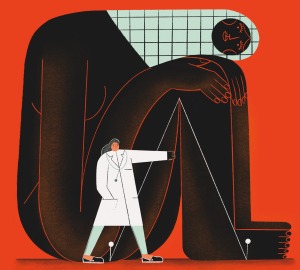
In 2018, internist Dr. Sasha Fahme volunteered on a medical mission to care for people displaced by the Syrian civil war in Lebanon. Estimates of the number of Syrian refugees in Lebanon vary, but the UNHCR, the UN refugee agency, has registered approximately 815,000, about half of whom are women. As one of only two Arabic-speaking women on the medical mission, Dr. Fahme treated women living in tented refugee settlements for gynecological symptoms.
Dr. Fahme, who spends most of her time working in Lebanon, was struck by the number of women she saw presenting with signs like pelvic inflammatory disease, which is characteristic for many sexually transmitted infections (STIs). When she looked to the literature to learn more, she found virtually nothing on STIs among refugee women.
“At that point, I said, ‘I want to shift my career,’” she recalls. “‘This is what I really want to focus on.’”
Since then, Dr. Fahme has conducted multiple studies aiming to understand the sexual and reproductive health challenges refugee women face. Her work also examines the relationship between those conditions and circumstances such as interpersonal violence, food insecurity and war.
One study she concluded earlier this year was supported by a Fund for the Future Award from the Weill Department of Medicine. Another is funded by a K01 award from the National Institutes of Health Fogarty International Center — the first K award to study Syrian refugee women’s health, according to the NIH RePORTER database. Dr. Daniel Fitzgerald, director of Weill Cornell Medicine’s Center for Global Health, and American University of Beirut Professor Jocelyn DeJong serve as Dr. Fahme’s primary mentors for the study; Ehrenkranz Family/Orli R. Etingin, M.D. Associate Professor in Women’s Health Dr. Jennifer Downs (M.D. ’04) and Professor of Population Health Sciences Dr. Laith Abu-Raddad serve as co-mentors.
The research applies mixed methods to determine the etiologies of Syrian refugee women’s gynecological symptoms. Then, it will use those data to adapt an existing intervention (the Dia del Mercado Project, designed to increase cervical cancer screenings in Peru) to combat recurrent genital infection symptoms and gender-based violence among refugees.
“An intervention which focuses on reproductive tract infection awareness and treatment, but that does not address related violence against women, would likely not lead to sustainable improvements in health, as women will be at continued risk of recurrent infections,” she says.
Last year, Dr. Fahme presented to a World Health Organization (WHO) meeting, and her work contributed to a set of WHO recommendations for self-care interventions women can use in crisis settings. She has also collaborated on multidisciplinary research examining the connection between women’s employment and health, specifically in the context of compounding crises. Dr. Fahme stresses that helping refugee women — and children and men, too — will require doctors, lawyers, policymakers and other leaders to commit to addressing the root causes of conflict and war.
“Without doing that, we’re just putting Band-Aids on these things,” she says, “and they’re not going to go away.”
Fall 2024 Front to Back
-
From the Dean

Message from the Dean
By integrating innovations in artificial intelligence into clinical practice, the aim is to enhance, rather than replace, the personal care that patients value. -
Features
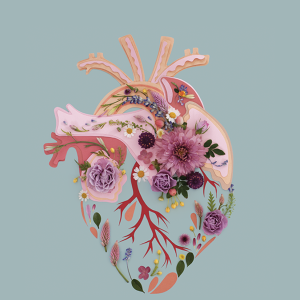
Change of Heart
To tackle long-standing sex disparities in outcomes for cardiac surgery, Weill Cornell Medicine physicians are pursuing innovative clinical trials and treatment -
Features

The Dark Side of STING
Painstaking research has yielded vital new insights on how a protein known for triggering inflammation can both hinder — and accelerate — cancer -
Features

Teaching Empathy in the Digital Age
Meet C.A.R.L., a lifelike virtual “patient” who stands at the vanguard of advances in immersive learning that could improve the way doctors are trained. -
Notable

New Chair and Physician-in-Chief
Dr. Myles Wolf, who specializes in nephrology, will oversee Weill Cornell Medicine's largest clinical and academic department. -
Notable
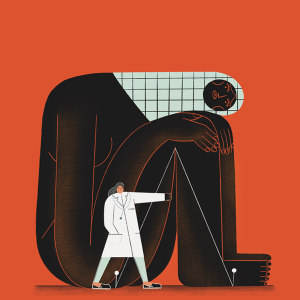
Dateline
Dr. Sasha Fahme is leading studies to better understand the sexual health challenges refugee women face. -
Notable

Overheard
Weill Cornell Medicine faculty members are leading the conversation about important health issues across the country and around the world. -
Notable

News Briefs
Notable faculty appointments, honors, awards and more — from around campus and beyond. -
Grand Rounds

Lending an Ear
How a single-sided cochlear implant is helping a psychiatry resident achieve his dreams. -
Grand Rounds

The Art of Medicine
Through visits to the Guggenheim and more, medical students are expanding their thinking to improve patient-centered care. -
Grand Rounds

News Briefs
The latest on teaching, learning and patient-centered care. -
Discovery

Unraveling the Riddle of Suicide Risk
Researchers are identifying new preventive strategies by leveraging cutting-edge computational techniques and cross-disciplinary strategies. -
Discovery

A Common Type of Fiber May Trigger Bowel Inflammation
An unexpected finding could pave the way for therapeutic diets that ease symptoms and promote gut health. -
Discovery

Findings
The latest advances in faculty research, published in the world’s leading journals. -
Alumni

Profiles
From leading the Alumni Association to improving public communication of science, our alumni are making an impact. -
Alumni

Notes
What’s new with you?
Keep your classmates up to date on all your latest achievements with an Alumni Note. -
Alumni

In Memoriam
Marking the passing of our faculty and alumni.
-
Alumni

Moments
Marking celebratory events in the lives of our students and alumni, including the White Coat Ceremony and Reunion. -
Second Opinion

Taming Weed
How can medicine and public health address largely unregulated, readily available and potentially harmful marijuana products? -
Exchange
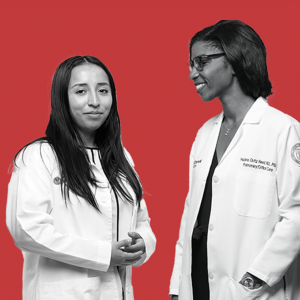
Roles in Research
A physician-scientist and a college student discuss how undergraduate research opportunities can boost the STEM pipeline of those from historically underrepresented communities. -
Muse

Making the Music
Clinical psychologist Dr. Robert Allan finds inspiration from composing and playing the piano. -
Spotlight
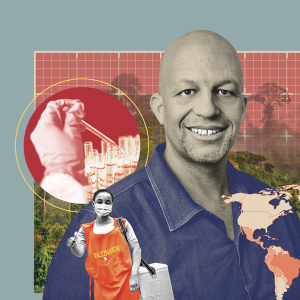
Therapeutic Advocate
In his quest to help more patients, Dr. Joseph Amprey (M.D. ‘04, Ph.D. ‘02) shifted from clinical practice to drug development.
